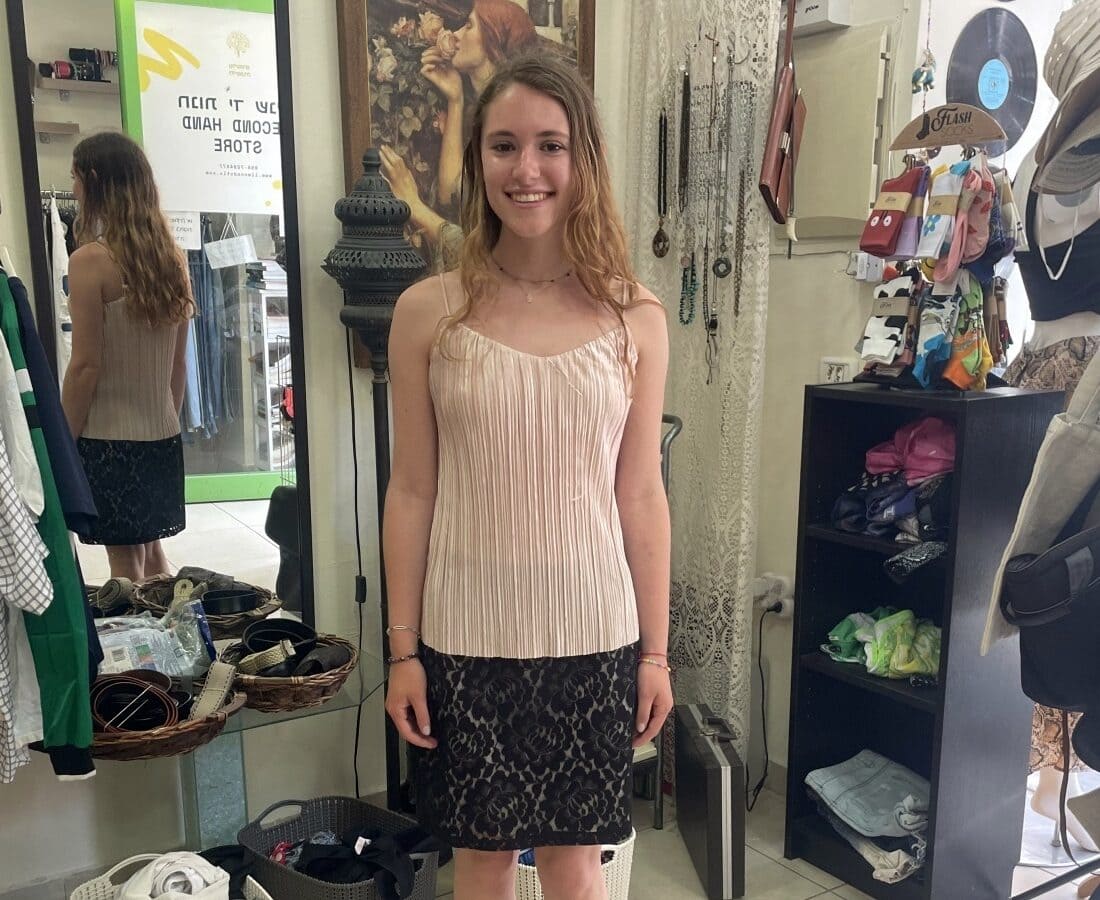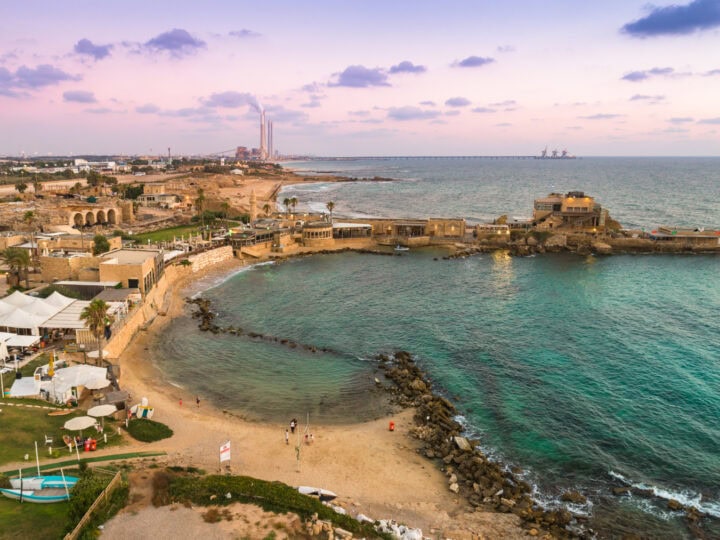Tel Aviv is fully on the sustainability bandwagon! The city has a growing number of businesses bringing repurposed or upcycled merchandise to customers.
Sustainable businesses strive to reduce their environmental footprint by using resources efficiently, minimizing waste, choosing ecofriendly practices and promoting social responsibility.
Even though Tel Aviv is such an expensive city, its variety of sustainable businesses provide environmentally friendly products and services for residents and visitors alike.
Here are three I visited.
Limonada, 76 Nachalat Binyamin St.
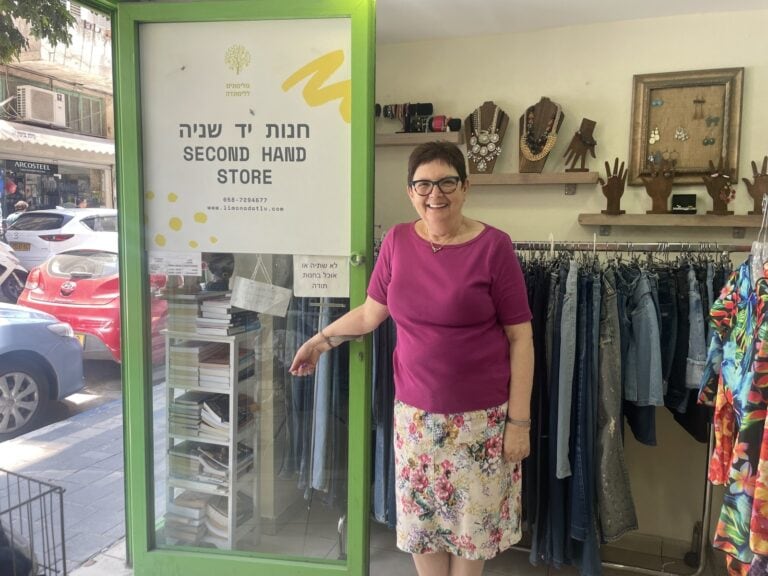
The owner, Jeanette Shine, makes thrifting fun and fascinating. I saw and tried on so many unique styles, vintage items, and clothes I wouldn’t normally find anywhere else.
Shine was up to date on the current fashion trends and even intuited what I would and wouldn’t like. As we sifted through the racks, she would say, “There’s this, but you don’t like that,” and she was right every time.
“After a lifetime full of hard work in mundane jobs, I decided to follow my heart, and open this store – helping people find clothes they’ll love at affordable prices,” Shine said.
“I grew up wearing clothes from other people as we did not have enough money to buy new. And till today, even with all the shopping centers, I still prefer to go to a secondhand store or online. In thrift stores, there is so much more variety and you can easily find something for every occasion.”
Among the items she showed me was a sheer, cropped long-sleeved swim top that you can tan through (50 shekels, or about $13.50); a gorgeous black dress with a unique sparkly pattern (50 shekels); and a beautiful pair of low heels studded with pearls and rhinestones (40 shekels).
“Even though I like to buy secondhand, I very much like nice things and I don’t believe that one needs to come at the expense of the other. I think we can all have nice things even if they are used,” says Shine.
Tel Aviv’s thrift shops are an incredible source of inexpensive, sustainably sourced wardrobe pieces for men, women and children.
Neutra Atelier, 8 Ruhama St.
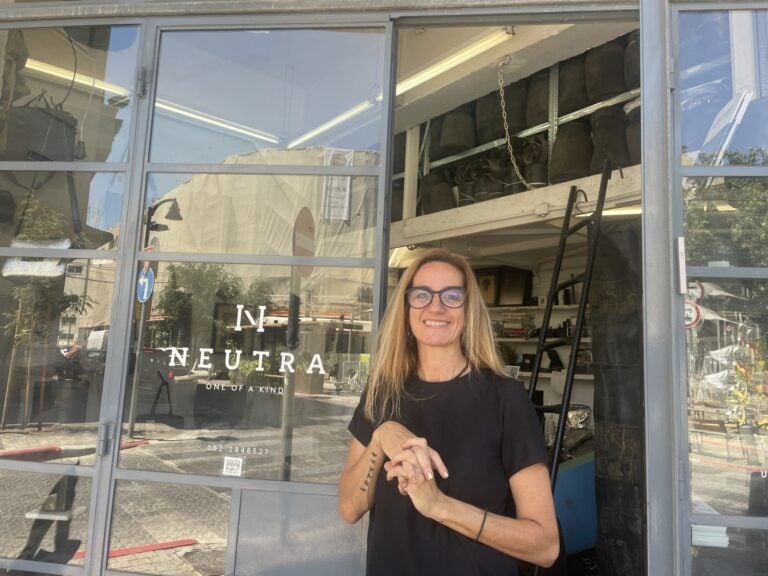
Neutra is a business that repurposes tire inner tubes. The owner, Elanit Neutra, spent her whole life immersed in art and design.
When walking the streets of Israel one day, Neutra found a piece of tire, took it home and made a bag from it. That was the start.
Neutra later expanded from designing bags to designing furniture and household accessories, especially for the dining room.
Neutra prices her items according to how simple they are to make. Purses typically range between 300 to 500 shekels (about $75 to $130) and furniture is in the thousands.
“If you make it in a quality way, it will be timeless,” she told me.
When people are looking for something more simple, Neutra tells them to bring something back from the flea market so she can reconstruct it.
“I don’t like material that is not good for the environment and I’m trying to find things that suit the planet,” said Neutra.
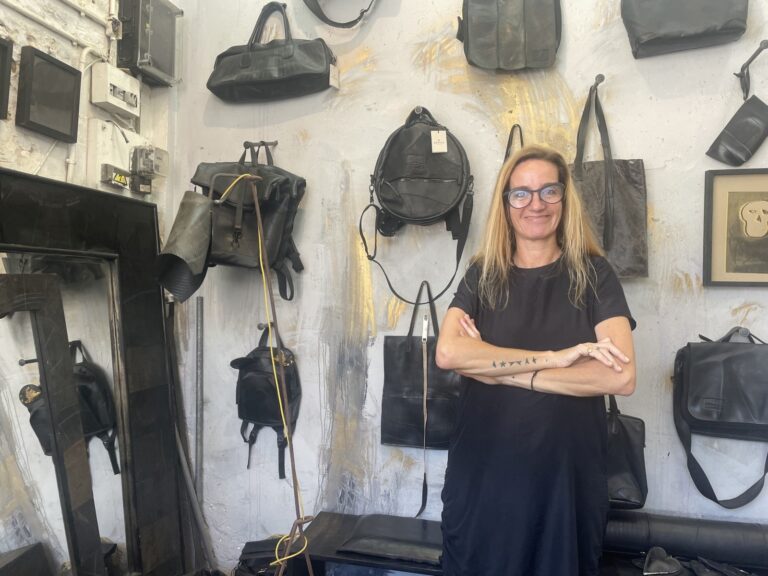
There are a lot of constraints and aspects to consider when it comes to making these designs. However, Neutra likes being challenged. “You think more creatively when you have limits,” she said.
Neutra’s father was a second-generation Holocaust survivor. “So maybe it’s influenced me somehow not to waste,” she said.
Pnimeet Bike Recycling, Dizengoff Center
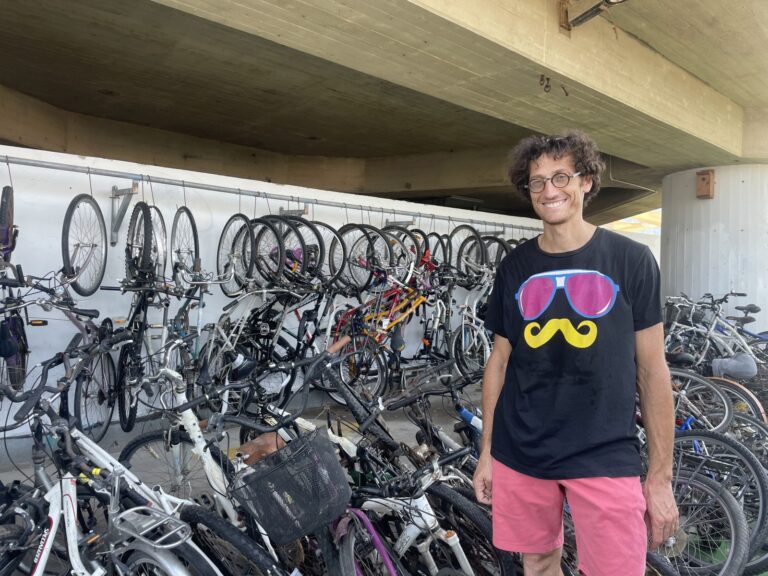
This community bicycle shop and non-governmental organization (NGO) on the rooftop of a mall is where I met Nathanael Singer, whose size 15 feet got too big for roller skates, leading him to find his passion among bikes.
At Pnimeet, people can come in and do one of two things: pick out a bike from the stock inhouse, or bring in their own bikes to be fixed up and renewed.
Pnimeet offers an annual subscription of 150 shekels for people to make and use as many bikes as they please.
“All the spare parts, all the utilities, all the tools, all the help and volunteers are available for you throughout the year, and the purpose is to welcome people to come over and over again,” said Singer.
“We live in an economy where we fast-track a lot of things. The beauty about bicycles is that old bikes and new bikes function the same way.”
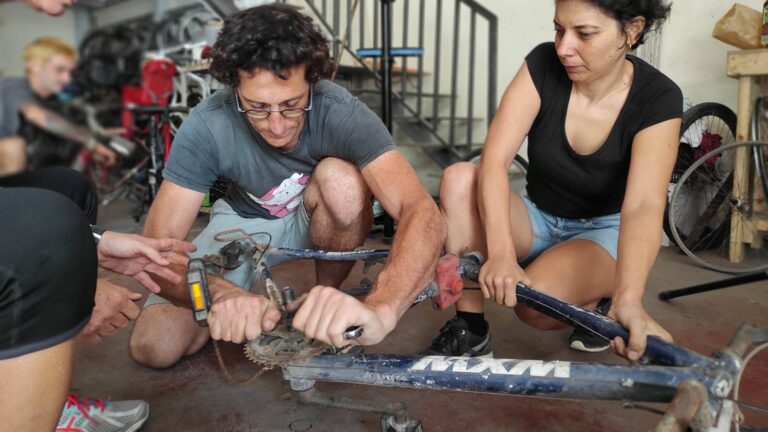
He explained that bicycles are affordable and “designed for disassembly,” so rather than throwing the whole thing in the garbage when a part breaks, the part can easily be replaced, making bicycles a sustainable mode of transportation.
As someone who grew up in Tel Aviv “knowing how annoying it is to get stuck in traffic,” Singer works to position this business in the urban sphere.
“This is something we can reuse for the benefit of the good — trying to collect those bicycles and putting them in the hands of people who need them,” Singer said.
In the fall, Pnimeet opened a new branch in Park Hatachana in Tel Aviv’s Neve Tzedek neighborhood, and since the war began Singer has been volunteering with displaced residents from the south and the north.




